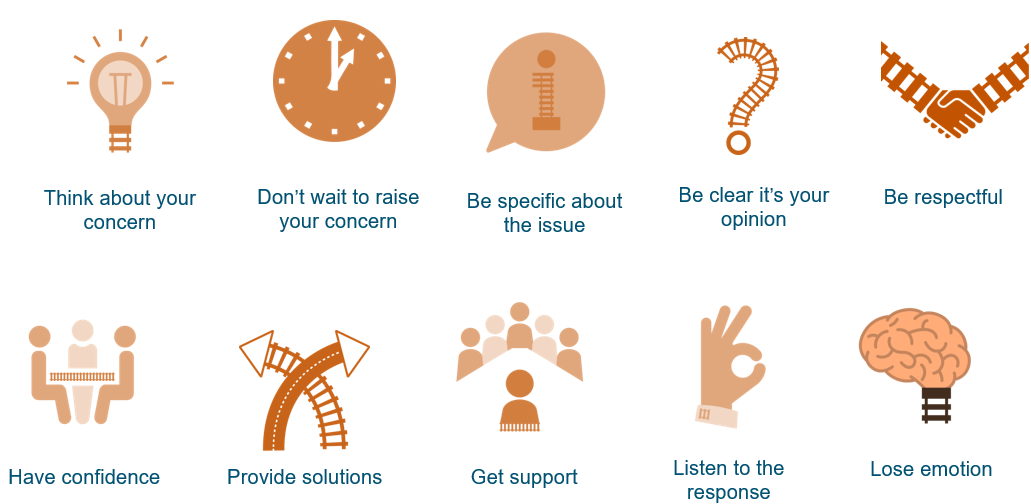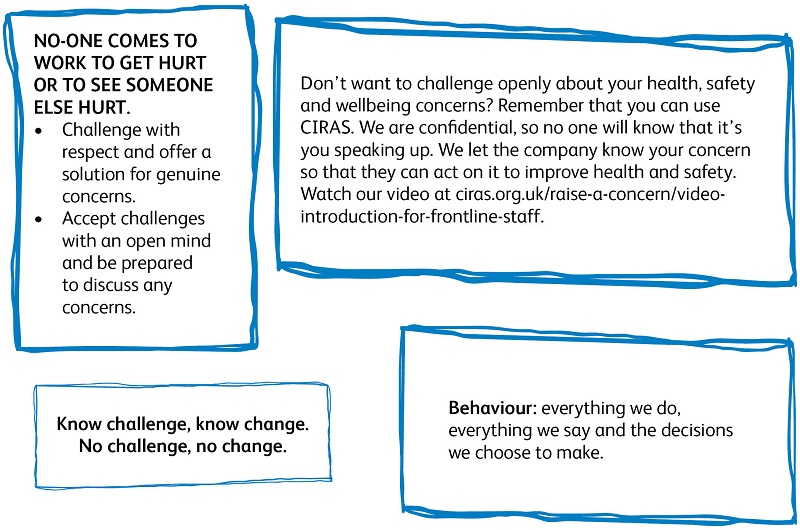We share new guidance from Network Rail* about how to challenge well – and why it’s good for everyone’s safety, whatever transport sector you work in.

What is challenge?
It means speaking up to say when something isn’t safe or could endanger you and your colleagues. You can challenge openly – for example to a manager – or confidentially, by raising a concern to CIRAS.
Why don’t people challenge?
- They don’t know something is wrong
- Lack of experience
- Feeling intimidated
- Peer pressure
- Fear of repercussions
- “Someone else will do it”
- “I’m not that bothered”
- “It’s not my job”
Why do we challenge?
We challenge to resolve issues, make improvements and avoid problems. Challenging is also a vital tool in keeping ourselves, colleagues and passengers safe and secure. If we are all prepared to challenge and be challenged, we can identify risks and take action before our safety is put at risk.
How do YOU feel about challenging someone?
Questions to ask yourself, and discuss with colleagues:
- What types of things would you challenge? (For example: unsafe acts, unsafe conditions, poor communications, behavioural and cultural issues.)
- When would you challenge?
- How would you challenge?
- What might stop you from challenging someone and why? (It’s your boss? You’re afraid?)
- Have you ever challenged anything or anyone in the past and how did it make you feel?
- How was the challenge received and what happened as a result?
- If your challenge is not dealt with and things still seem unsafe, what would you do now? (For example: work safe procedure, or escalate.)
- How supported do you feel with challenging and raising concerns?
- What might happen if you (A) challenge someone or (B) don’t challenge them?
10 ways to challenge constructively

Possible consequences of challenging
| If you do challenge |
If you don't challenge |
| - Backlash from management/colleagues |
- Be an underlying cause of injury or death |
| + Respect from colleagues and management |
- Suffer mental health problems, such as stress, guilt, post-traumatic stress disorder |
| - Seen as a troublemaker |
- Potential disciplinary action |
| + Confidence that you did the right thing |
- Potential legal action under S7 HASAWA |
| - Feel like a 'grass' |
- Lifetime of regret |
| + Save someone from injury, even save their life |

*Guide created by Shaun De Redder, safety culture change consultant (Eastern region) at Network Rail


